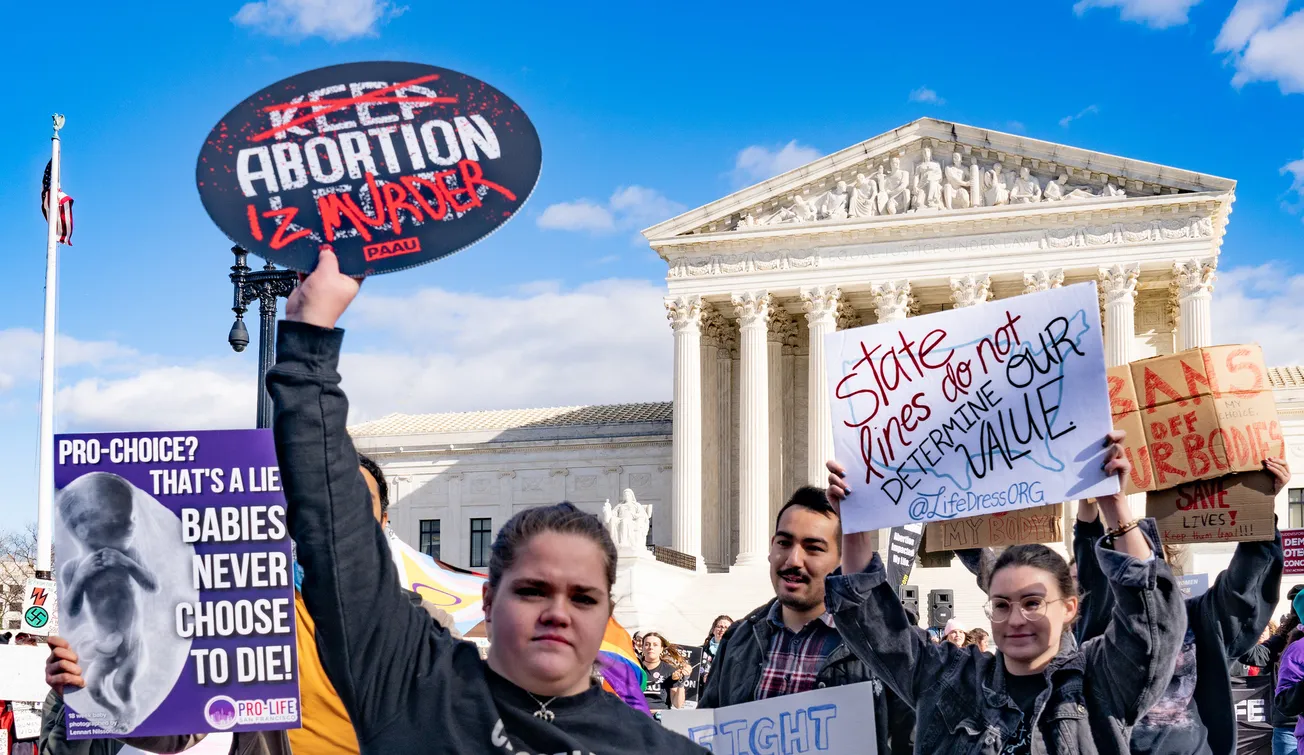Welcome to the latest edition of our weekly roundup. Every Monday, we’ll send you a summary of the biggest stories about bodily autonomy. We’ll also include links to pieces that Garnet or Susan have published.
If you’d prefer to receive a single email every week, you can do that—we love autonomy. You can manage your subscriptions by navigating to the site, clicking on “Account” in the upper right, then under “Emails,” select “Manage.” You can toggle off “Autonomy News” to receive only the roundup, or vice versa.
Let’s dive in.
On Autonomy News
Now that the GOP budget law “defunding” Medicaid providers that offer abortion is fully in effect, we contacted every potentially affected Planned Parenthood affiliate. Here’s what we learned about whether people with Medicaid can still visit their local clinic. (Share this story on Instagram, Bluesky, or TikTok.)

Help keep our journalism free for all. Sign up for a paid subscription, drop a little something in our Tip Jar, or shop our merch.
Federal news
The new Supreme Court term began today, and there are multiple cases that threaten bodily autonomy. To the shock of no one, Christian nationalist law firm Alliance Defending Freedom (ADF) is deeply involved. In arguments set for Tuesday, ADF is representing a therapist challenging Colorado’s ban on so-called “conversion therapy” a pseudoscientific practice that aims to change someone’s sexual orientation or gender identity. The counselor, Kaley Chiles, says the law violates her First Amendment rights and argues that two previous decisions mean she should prevail: a 2018 case striking down regulations on anti-abortion crisis pregnancy centers (NIFLA v. Becerra), as well as a 2023 ruling that an antidiscrimination law violates speech rights (303 Creative v. Elenis). Guess who was behind both of those previous cases? ADF.
The court will also hear a consolidated case on whether states can ban transgender athletes from participating on school sports teams that align with their gender identity. Student athletes in Idaho and West Virginia sued over their state’s bans, though the Idaho student asked the court last month to drop her case. ADF is representing both states; an argument date has not yet been scheduled.
Rather than outright dismissing a lawsuit against the Food and Drug Administration over the abortion drug mifepristone, Texas district court Judge Matthew Kacsymaryk transferred it to a federal court in Missouri. The attorneys general of Missouri, Kansas, and Idaho argue in the case that the FDA should end telemedicine prescriptions of mifepristone and roll back approval for its use from 10 weeks of pregnancy down to 7 weeks. The states are piggybacking on a case originally filed by anti-abortion doctors in 2022. In 2024, the Supreme Court said these original plaintiffs didn’t have standing to sue. Earlier this year, Trump’s Justice Department said the AGs couldn’t continue the case in Texas, so Kacsmaryk chose to keep the case alive by moving it. However, he did deny newer motions to intervene from the AGs of Texas, Florida, and Louisiana. It’s not yet known which judge will be randomly assigned to the case as it won’t be officially transferred until October 21, but President Donald Trump appointed seven of the nine judges serving the Eastern District of Missouri. Two of them would technically have to recuse themselves because they worked on the case in the Missouri AG’s office.
In a move that surprised many, the FDA approved a second generic version of mifepristone for abortion last week. In a letter dated September 30, the FDA informed a company called Evita Solutions LLC that its 2021 application was approved. Evita will now join GenBioPro, which became the first generic manufacturer in 2019. (Other companies make mifepristone at a different dose to treat Cushing syndrome.) Anti-abortion groups acted mad about this approval, with Susan B. Anthony Pro-Life America calling it “unconscionable” and “reckless,” while Students for Life suggested it was the work of the “deep state” within the FDA. But this approval doesn’t guarantee anything about future access. Just look at Health Secretary Robert F. Kennedy Jr.’s statement on X, saying that federal law required the approval and that the FDA’s “review” of mifepristone is ongoing:
The Biden administration removed mifepristone’s in-person dispensing rule without studying the safety risks. We are filling that gap. Last month, I joined @DrMakaryFDA in writing to state attorneys general, pledging to review all the evidence — including real-world outcomes — on… pic.twitter.com/G0eE4H4y42
— Secretary Kennedy (@SecKennedy) October 2, 2025
The Department of Justice is suing pro-Palestine demonstrators it says intimidated people at a synagogue in New Jersey. The DOJ alleges that these demonstrators violated the Freedom of Access to Clinic Entrances (FACE) Act, which protects “houses of worship” in addition to reproductive health facilities. This inclusion of churches in the FACE Act was a “both sides” compromise made in order to secure its passage back in 1994, but this is the first time it has actually been used this way. (Attacking or intimidating churches and churchgoers was already illegal under numerous other federal laws.) Conservative lawmakers and advocacy groups have called on Congress and the Trump administration to repeal the FACE Act, but clearly, the DOJ still finds it useful—just not for its original purpose.
State news
Louisiana has issued an arrest warrant for California “shield” law abortion provider Remy Coeytaux, who also faces a civil lawsuit in Texas. If this is giving you déjà vu, it’s because New York abortion provider Margaret Carpenter is also facing a civil lawsuit in Texas and criminal charges in Louisiana. In Coeytaux’s case, the Texas civil suit was brought by a man suing over his partner’s alleged abortion. (That man is represented by anti-abortion legal activist Jonathan Mitchell, who is also behind the recent high-profile Texas suit in which a woman claims her male partner put abortion pills in her hot chocolate. The man, who says she made the story up, alleges the suit was politically motivated.) In Louisiana’s case against Coeytaux, authorities are also asserting that a man purchased abortion pills in order to coerce his partner into having an abortion, further reinforcing the anti-abortion movement’s current favorite narrative—that abortion pills enable abusers.
Relatedly, a new study reviewed all the complaints made to the New Orleans Health Department by physicians and pharmacists since a Louisiana law making misoprostol a controlled substance went into effect. Misoprostol is used in abortion care, but also has many other obstetric uses, including treatment for postpartum hemorrhage. According to the paper, the law has led to regular delays in accessing this lifesaving medication in emergencies. It has also delayed care for pregnant people, cancer patients, and people undergoing fertility and contraception treatments.
Though the Medicaid abortion provider “defund’ provision was written to target Planned Parenthood, it has also ensnared a few large independent abortion providers. One of these, Maine Family Planning, says it will close its primary care practice by the end of the month. This will affect about 8,000 Mainers, 70 percent of whom relied entirely on MFP for their health-care needs, according to the organization. MFP says it will continue to offer reproductive health services for as long as possible.
Democratic lawmakers in Wisconsin have introduced new legislation to help the state’s two independent abortion providers, Care for All and Affiliated Medical Services, absorb the increase in patient demand now that Planned Parenthood of Wisconsin has stopped providing abortion care in response to the “defund” provision. Their bill would repeal a host of abortion restrictions, including requirements for a physical exam and ultrasound before an abortion—which evidence shows are not necessary in most cases—a requirement that a doctor be physically present when a patient takes their first abortion pill, and a requirement that a patient must see the same doctor at least 24 hours apart in order to have an abortion. The proposed legislation would also allow advanced practice providers like nurse practitioners and physician associates to provide abortion care.
A Missouri judge threw out Secretary of State Denny Hoskins’ first attempt to rewrite the ballot summary for a 2026 constitutional amendment that would ban abortion after his revision failed to make clear that it would… ban abortion. That was Tuesday. On Thursday, Hoskins submitted his second revision, and guess what? It also makes the same misleading omission that the ACLU of Missouri sued over in the first place. He has one more chance to submit ballot language that satisfies Judge Daniel Green, but if Green finds it insufficient, he will rewrite it himself.
In April, the Wyoming Supreme Court heard oral arguments in a challenge to three different abortion bans—a “trigger” law, another total ban, and a specific ban on medication abortion. The chief justice recently said she doesn’t expect the court to issue an opinion until the end of the year. The case hinges on whether language in the state constitution, which guarantees an individual right to make health care decisions, guarantees a right to abortion. (Ironically, this amendment was added as part of an anti-Obamacare backlash.) All three laws remain blocked while litigation continues, so abortion, including via telemedicine, is currently available in Wyoming.
Susan B. Anthony Pro-Life America’s PAC announced a $4.5 million investment in a third Senate race for 2026: North Carolina. Democratic Gov. Roy Cooper is running for the seat being vacated by Thom Tillis (R). SBA Pro-Life America previously announced commitments of the same amount in Michigan and Georgia.
Personhood watch
In the two years after the Supreme Court overturned Roe v. Wade, at least 412 people across the country were charged with pregnancy-related crimes, per a new report from Pregnancy Justice. The most common charges were child endangerment, neglect, or abuse, usually related to allegations of substance use during pregnancy. In 29 cases, law enforcement treated pregnant people’s failure to obtain prenatal care as evidence of a crime. Thirty-one cases involved people who experienced miscarriages or stillbirths, and nine people were accused of attempting or researching an abortion. Alabama leads the nation in such charges (192), followed by Oklahoma (112) and South Carolina (62). These arrests are the logical conclusion of fetal personhood laws, which say fertilized eggs, embryos, and fetuses should have a legal right to life—which necessarily strips rights from pregnant people.
Assaults on queer people
The Administration for Children and Families, a federal agency, has notified Massachusetts that it will investigate a state policy requiring foster parents to support a child’s gender identity. This comes shortly after—you guessed it—Alliance Defending Freedom filed a lawsuit on behalf of two families who say they are ineligible to foster because this policy conflicts with their religious beliefs. The case is highly similar to ones ADF has filed in other states, including Washington and Oregon. In July, the Ninth Circuit Court of Appeals ruled in favor of ADF’s client in the Oregon case.
Quick hits
- We have everything we need to eradicate cervical cancer—but experts say anti-vax policies and cuts to Medicaid may have moved that goal out of reach.
- Pope Leo on criticism of the Chicago Archdiocese planning to honor pro-abortion rights Sen. Dick Durbin: “Someone who says, ‘I’m against abortion,’ but is in favor of the death penalty is not really pro-life. Someone who says, ‘I’m against abortion but I’m in agreement with the inhuman treatment of immigrants in the United States,’ I don’t know if that’s pro-life.”
- Justice Amy Coney Barrett’s book repeats the anti-abortion lie that former Justice Ruth Bader Ginsburg opposed the Roe v. Wade decision whole cloth. Her actual criticism was that its reasoning should have been more expansive and based on equal protection under the 14th Amendment, rather than a right to privacy.
- Trump as a modern Anthony Comstock: “America’s most prolific censor became a laughingstock — and that spells bad news for Trump.” Reminder that we have anti-Comstock merch.
Actual good news
The bare minimum of wins: A federal judge in Michigan dismissed a lawsuit from anti-abortion groups seeking to challenge the state’s successful 2022 constitutional amendment codifying reproductive freedom. The plaintiffs, including Right to Life of Michigan, argued that the amendment deprived parents of their ability to make medical decisions for their children and burdened their free exercise of religion. But the judge ruled they didn’t have legal standing to sue because the state hadn’t harmed them.
Palate cleanser
Spooky szn is upon us.
@piperlils 🧙🧙♀️🧙let’s just say they were not up there when i left.. #fyp ♬ Originalton - 🕳👩🦯
Follow Autonomy News on Instagram, Bluesky, TikTok, and LinkedIn.








